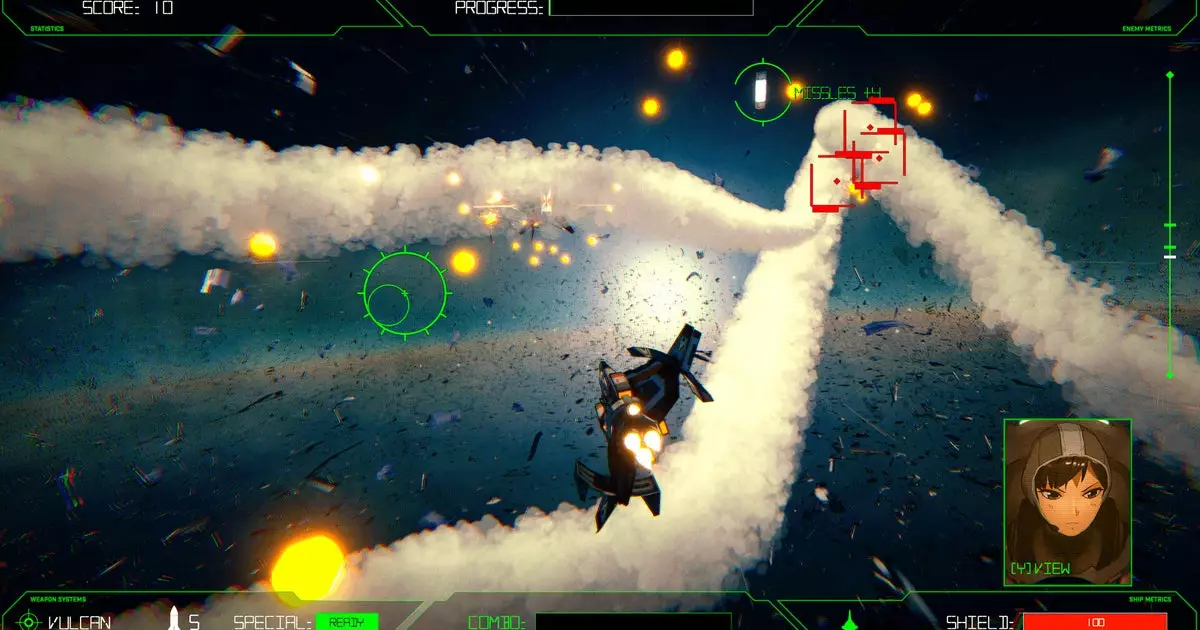Rogue Flight, an upcoming arcade space combat game, is poised to take audiences on a nostalgic trip back to the beloved aesthetic of ’80s and ’90s anime. Even if the term “anime” often sparks debates on narrative quality and style within various fandom circles, the developers undeniably channel a retro charm that will resonate with long-time enthusiasts. This title aims to strike a balance between engaging gameplay mechanics and a visually captivating narrative set against the cosmic backdrop of interstellar conflict.
With nine meticulously crafted stages, Rogue Flight offers players a dynamic combat experience that includes performing acrobatic maneuvers and engaging in intense dogfights. Coupled with a branching narrative path, the game is designed to ensure that every playthrough can result in a distinct outcome. For those seeking added challenge, an unlockable roguelite mode will introduce permadeath mechanics, enhancing the stakes and depth of the gameplay. This fusion of classic arcade action with modern roguelike elements illustrates an understanding of the current gaming climate, providing a fresh take on traditional space shooters.
Customization is an inherent part of the player experience in Rogue Flight. Players can modify their spacecraft and pilot avatars, tailoring not just performance but also the visual appeal to suit individual preferences. This creative freedom facilitates a deeper connection to the characters, making the player’s journey both visually and emotionally engaging. Furthermore, the game features a notable voice cast prominently featured in the anime universe. While fans of the original Japanese versions will certainly appreciate this aspect, those who prefer dubbed content (like myself) may focus more on the voice talent from Western gaming titles. Regardless, it’s essential that the character voices resonate well with the diverse player base.
What stands out about Rogue Flight is not merely its gameplay but also its aesthetic tone, reminiscent of tragic narratives that define much of classic anime. Many players are drawn to stories that dive deep into emotional struggle, embodying themes of loss and the fight against fate. There’s an intrinsic allure in piloting a spacecraft a player has customized while resonating with the profound melancholy that accompanies the battle. This emotional layer invites players to engage not just on a mechanical level but also a psychological one, transforming traditional combat mechanics into a tangible outlet for personal and universal struggles.
Rogue Flight is shaping up to be more than just another entry into the competitive space shooter genre. It promises to interweave the excitement of its engaging gameplay with deeply resonant themes often found in anime. As players prepare to take to the stars later this year, this game aims to provide an experience that celebrates both the thrill of victory and the poignancy of personal journeys, making it a title worth watching for in the evolving gaming landscape.


Leave a Reply